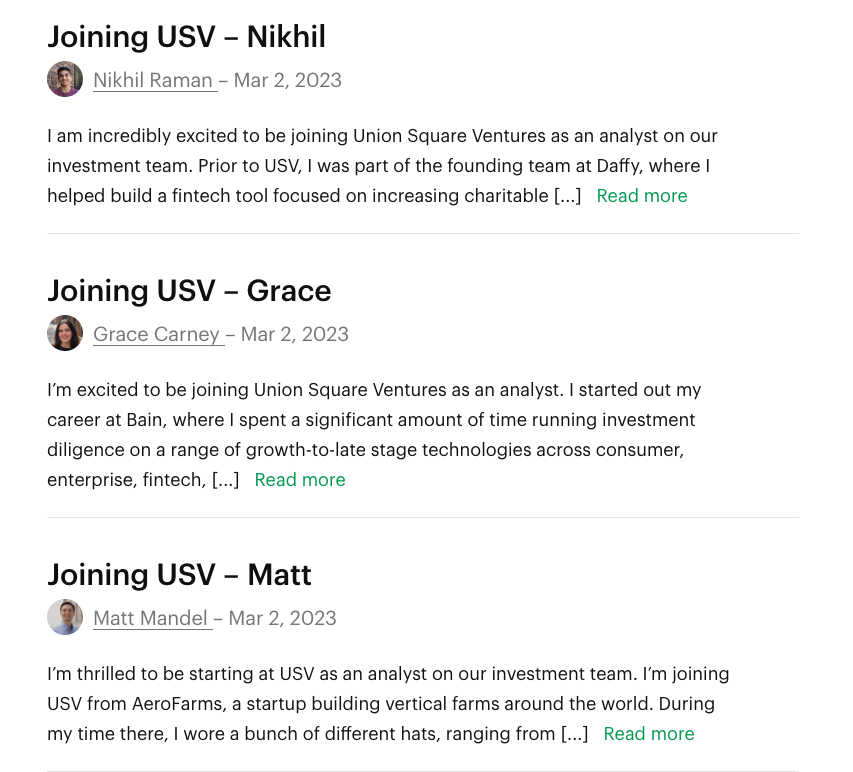What Is A Protocol And Why Does It Matter?
Enabling trusted brands that broaden access to knowledge, capital, and well-being by leveraging networks, platforms, and protocols.
https://www.usv.com/#thesis-3-0
That last word is powerful but unfortunately less understood than the other words in that sentence.
Protocols have been around forever and are well-understood codes of conduct between people.
In computer science, protocols are the same thing, codes of conduct.
I like this definition of computer protocols from the Cloudflare website:
Standardized protocols are like a common language that computers can use, similar to how two people from different parts of the world may not understand each other’s native languages, but they can communicate using a shared third language. If one computer uses the Internet Protocol (IP) and a second computer does as well, they will be able to communicate — just as the United Nations relies on its 6 official languages to communicate amongst representatives from all over the globe. But if one computer uses IP and the other does not know this protocol, they will be unable to communicate.
https://www.cloudflare.com/learning/network-layer/what-is-a-protocol/
Protocols have been around for as long as computers, but we are at the beginning of a golden era of protocols that I like to call “web3.”
Until recently protocols were mostly free and unmonetized. We all use the HTTP protocol every day to access web pages. We all use the SMTP protocol every day to send email. But these protocols are free to use and don’t make money for any company or project or individual.
With the arrival of Bitcoin back in January 2009, we got a protocol that had monetization built in.
And since then, computer scientists have been creating web3 protocols for all sorts of things, most of which have a token that monetizes the protocol.
The monetization is not just about enriching the creator(s) of the protocol. It is also used to incentive usage of the protocol and operation of the protocol. In the Bitcoin protocol, that is operating mining computers that secure the Bitcoin network. In the Helium protocol, that is operating hotspots that connect the network. In the Ethereum protocol, that is staking to secure the network. In the Filecoin protocol, that is operating storage systems that provide decentralized storage.
It is the monetization that sustains these protocols and makes them reliable for others to use and build on them.
And with sustainable and reliable protocols, we will get a new architecture of services that will be much more interoperable.
Let’s look at mobile messaging. Most of my friends and family are on iPhones. I use an Android. Messaging does not work very well between iPhones and Android phones. Many people in the world use Whatsapp for mobile messaging. But Whatsapp doesn’t speak to iPhone’s messaging app. Nor does Signal. And Signal doesn’t talk to Whatsapp. And so on and so forth.
If every mobile messaging app was built on a monetizable protocol, that was sustainably reliable because operating it made people and companies money, and if developers were incentivized to build on it so they could also make money, we would have a different situation. All of our mobile messengers would interoperate with each other.
The same situation will play out in every computing sector over the next few decades as these web3 protocols are designed, built, shipped, and built on. We are in the early days of this golden era of protocols, but we already have many working extremely well in the decentralized infrastructure and decentralized finance sectors.
It upsets me that protocols are both so powerful and also so poorly understood by the media, the mainstream, and the government.
The White House recently put out a document that said “crypto assets currently do not offer widespread economic benefits” suggesting that web3 was not economically important to the US. While the economic benefits of web3 are not widespread today, they are quite powerful and will eventually impact every economy and every market. And pouring cold water on them will not make them go away. Thankfully.

